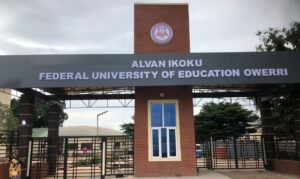ASUU, FG Meeting Adjourned Amid Strike Notice, Reason Emerges

The recent developments surrounding the Academic Staff Union of Universities (ASUU) and the Federal Government (FG) of Nigeria have sparked significant attention, particularly as the threat of a nationwide strike looms. Here’s a friendly overview of the situation, highlighting the key points and reasons behind the adjourned meetings.
Background on ASUU’s Concerns
ASUU has been vocal about its grievances regarding the federal government’s failure to honor a 2009 renegotiated agreement. The union’s demands primarily focus on:
- Improved Welfare: ASUU seeks better compensation and working conditions for university lecturers.
- University Funding: There is a pressing need for increased funding to enhance educational infrastructure and resources.
- Proliferation of Universities: ASUU advocates for a halt to the rapid establishment of new universities without adequate support for existing institutions.
These issues were formally discussed during ASUU’s national executive council meeting held at the University of Ibadan, where the decision to issue a strike notice was made due to the government’s inaction on these longstanding issues[1][2].
Recent Meeting Developments
Initially scheduled for August 26, the meeting between ASUU and the FG was postponed without a specified reason, and rescheduled to August 28. However, this meeting was again adjourned, and a new date has been set for September 6, 2024. This series of postponements has raised concerns among stakeholders about the urgency of resolving the ongoing issues[1][3][4].
During the latest meeting, the Minister of Education, Prof. Tahir Mamman, acknowledged the historical context of ASUU’s demands, some of which date back to 1981. He assured that the government is actively addressing these concerns, emphasizing that bureaucratic delays have hindered progress. The Minister also encouraged ASUU to approach negotiations with an open mind to facilitate a productive dialogue[2][3].
Moving Forward
As the rescheduled meeting approaches, both ASUU and the FG are under pressure to reach a satisfactory resolution. The union’s leadership has expressed a commitment to advocating for their members while also recognizing the need for constructive engagement with the government.
In conclusion, the adjournment of the ASUU-FG meeting reflects the complexities of negotiating educational reforms in Nigeria. With the next meeting set for September 6, there is hope that both parties will come to the table ready to address these critical issues, ultimately benefiting the academic community and the students they serve.




